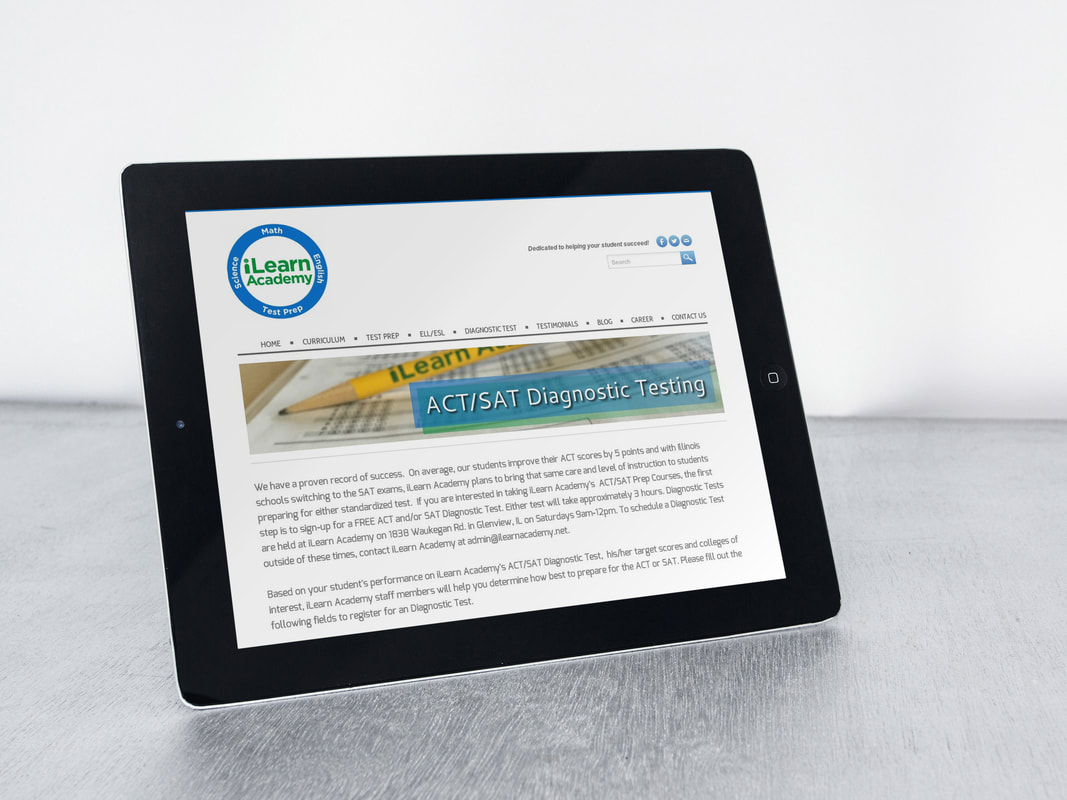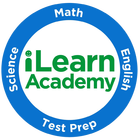|
Who wants to spend an evening waiting in a locker-littered hallway or jammed into a tiny desk? I don’t see many parents raising their hands!
Despite its associations with discomfort and even conflict, parent-teacher conferences are an opportunity for parents and teachers to strengthen the connection between school and home, promoting student success. Whether your parent-teacher conference will be held virtually or in-person this fall, here are some key tips to keep in mind: 1. Attend! It’s no secret that parent-teacher conferences can be poorly attended, especially beyond elementary school. Even if your child gets good grades, conferences offer an insight into all aspects of the school experience, from academics to social behaviors. Utilize conferences as an opportunity to be involved in your child’s school community and help advance your child’s education. Especially since the widespread adoption of virtual conferences during the pandemic, schools may offer flexible formats to make conference scheduling easier for everyone. Connect with your child’s school if you need to reschedule or request to attend via an alternate format. 2. Arrive prepared. With grades and behavior often topping the list of discussion points, parent-teacher conferences can be stressful enough. Ease your mind by arriving prepared. If the teacher sends a meeting agenda before the conference, have this handy so that you can anticipate how your priorities fit into the teacher's plan, helping you make the most of your meeting time. If you really want to do your homework, review the school handbook, the class syllabus, and/or any classroom policies that can help you better understand the expectations and experiences of your child before you set foot in their classroom. 3. Involve your student. Although students are not always invited to parent-teacher conferences, this doesn’t mean that they shouldn’t be involved. This meeting is about them, after all! Before the conference, ask your child how they feel about school and if there is anything they need from their teacher. Consider bringing your student to the conference, provided that the school allows it and that your student is able to participate in a conversation about successes and challenges. After the conference, debrief with your child. Reiterate or explain any action plans and remind them that you want them to succeed. 4. Focus on more than academics. While parent-teacher conferences may center on academic performance, they are also an opportunity to discuss social and emotional aspects of the educational experience. Your child’s teacher(s) may be able to give you valuable insight into your child’s social skills, friendships, and general behavior at school. 5. Remember that you are on the same team. Two-way communication is the key to any successful parent-teacher partnership. While parent-teacher conferences can trigger anxiety on both sides, an effective conference focuses on solutions, not only on problems. Don’t hesitate to ask the teacher to explain or elaborate. Whether it's the name of an assessment, a unit concept, or a specific student behavior, ask the teacher for clarification when needed. 6. Ask for resources or an extra meeting, if needed. Most parent-teacher conferences are tightly scheduled, meaning that it may not be possible to cover every topic on your list. Want to know more about test prep, reading strategies, or community resources? The teacher may have a recommendation or may be able to point you in a productive direction, even if time doesn’t allow for a deeper conversation on the topic. Ultimately, if you feel that an additional meeting would be beneficial, ask! Effective parent-teacher conferences are a central component of a successful parent-teacher partnership. As you engage with your student’s educational journey during upcoming parent-teacher conferences, remember that iLearn Academy is here to support you! To learn more, email us at [email protected], call us at (847) 834-0791, or fill out our online request form here.
2 Comments
“What advice would a wisdom tooth have?” “You are on an expedition to found a colony on Mars…” “If you could give any historical figure any piece of technology, who and what would it be…” These are parts of three of the University of Chicago’s extended essay prompts for the 2022-2023 admissions cycle. While essay prompts for the Common App, accepted by over 900 colleges and universities, may not raise as many eyebrows, every college essay is an opportunity for applicants to showcase their individual voices, perspectives, and even quirks! According to a 2019 study by the National Association for College Admission Counseling, 33.2% of 220 schools surveyed considered the college essay or writing sample to have moderate importance in the admissions process, while 23.2% assigned it considerable importance. While highly selective colleges have long tended to place more weight on the college essay than less competitive schools, the essay is arguably more important than ever in 2022’s increasingly competitive admissions landscape. On top of that, given the pandemic-driven rise of test-optional admissions policies, the essay may literally carry more weight; the absence of test scores means one less application component for admissions committees to consider. With the pressure to write an outstanding college essay as high as ever, it is never too early to begin learning about the process. To kick off, we will cover two themes that surface near the beginning of the essay-writing journey: understanding the purpose of college essays and selecting a prompt.  What is the point of college application essays? First and foremost, the essay is an opportunity to showcase your personality within your application. Admissions officers will receive plenty of information about you in the body of your application, from your grades, to your academic course load, to your roster of extracurricular activities. While each of these puzzle pieces fills in part of your story, the college essay is your chance to tell your story in your own words. It is an opportunity to showcase what you want the admissions committee to know about you, your motivations, and your values. Of course, the college essay also allows you to demonstrate your ability to communicate effectively and engagingly in writing. Whether or not writing is your forte, the college essay is one component of your application that is completely under your control! Because you have the chance to work on your essay well before submission time, admissions officers will expect it to be grammatically correct and polished. You can brainstorm, write, revise, and revise again for as long as you need. This is where teachers, counselors, and friends can help. Ask teachers or trusted adults to read your essay so that you can fine tune it and work out any usage or style kinks, ensuring that it presents you in the best light. In addition to putting your best foot forward grammar-wise, the college essay allows you to choose a tone that complements your overall application. Your essay should humanize you; it should flesh out the person you are beyond your academic and extracurricular accomplishments. In other words, your essay represents you to the admissions committee. It should sound like you. To accomplish this, read your essay aloud. Does it sound like something you would say, or is your voice lost between big words and complicated syntax? The best college essays transmit the applicant’s natural voice to the admissions committee and demonstrate how a student will enrich the campus community. Think of the essay not as another task, but as an opportunity to set the tone of your application!  How do I choose a prompt? With seven essay prompts to choose from for the Common App essay alone, it can be overwhelming to narrow down your options. When choosing a college essay topic, strategy is the name of the game. It is your mission to pinpoint the prompt that will produce the strongest college essay. Sometimes, this may not be the prompt that initially jumps out at you. It may not be the prompt you like the best. It should be the prompt that results in the most specific, compelling essay. While your best college essay will certainly be engaging, grammatically correct, and representative of your individual perspective, also consider how your essay topic can work for you. Imagine that your college application includes a stellar GPA, all Honors and AP courses, and every extracurricular under the sun. Would a clichéd, overly formal essay that describes how you won the Mock Trial Championship succeed in rounding out your college application? Probably not. Instead, a vivid essay anchored in a specific anecdote that draws on another aspect of your life would be more likely to do the trick. On the other hand, if you feel that your application is missing something, such as higher test scores or a longer list of extracurriculars, use your essay to help fill in the gap, connect the dots, or stand out in another way. If you begin your essay-writing process early, you can discover which prompt to choose through brainstorming and freewriting. You may develop drafts for two or three possible prompts before narrowing it down. Only the process of prewriting, writing, and revising will reveal which essay prompt resonates most with you. Ask yourself: What makes me interesting? What do I really care about, and what lights me up inside? These are examples of the many questions you can use to jumpstart your essay-writing journey!  How can I make sure my college essay is the best it can be? As any English teacher might preach to you: Revise, revise, revise! While many experts recommend beginning to work on your college essays during the summer before your senior year, the quality of your essay will ultimately depend on the overall time and effort you pour into it. In addition to enlisting the help of teachers and trusted adults, here are a few resources to support you:
iLearn Academy can help you write effective college admissions essays, from the initial brainstorm to the final proofread! To learn more, email us at [email protected], call us at (847) 834-0791, or fill out our online request form. While standardized testing in the United States can be viewed as either a rite of passage into higher education or an outdated practice mired in controversy, the coronavirus pandemic has added yet another layer of complexity and uncertainty to the future of the ACT and SAT. In the wake of testing cancellations, logistical pivots, and changes to the college application process, many students wonder whether taking the ACT or SAT is worth it. Do scores still matter, especially in an environment of increased test-optional colleges and universities? As you decide whether to take the ACT or SAT, here are some key points to consider: 1. Some schools might not be test-optional forever. Since the coronavirus pandemic began wreaking logistical havoc on the standardized test-taking process in 2020, the “test-optional” movement has gained unprecedented steam. If a school is test-optional, this means that the applicant decides whether or not to submit ACT or SAT scores. According to HigherEd Dive, at least 1,700 higher education institutions are not requiring students to submit SAT and ACT scores when they apply for admission for fall 2023. Some schools do not take test scores into account at all, even if they are submitted. In April 2022, FairTest.org identified 84 schools with “test-blind,” “test-free,” or “score-free” admissions policies in effect for Fall 2022. While some schools implemented test-optional admissions even before the pandemic as a means of increasing fairness and attracting a more diverse applicant pool, the widespread pandemic trend toward test-optional admissions is not necessarily here to stay. For instance, HigherEd Dive reports that the Massachusetts Institute of Technology and Georgetown University have returned to pre-pandemic policies, calling for applicants to submit standardized test scores during the 2023-2024 admissions cycle. With many students opting to sit a test 3 or 4 times in order to achieve an ideal score, it may be worthwhile to prepare for and take the ACT or SAT before narrowing down your college search to specific schools. If your dream school decides to reinstate standardized test scores as a required component of applications, you will want to be prepared! 2. Standardized test scores provide another data point. Students go to great lengths to craft the most competitive college application possible, reaching beyond grade point averages to extracurricular activities, letters of recommendation, community service, and the list continues. In many cases, the possibility of applying without submitting standardized test scores has prompted students to complete more applications and to apply to more selective schools. In arguably the most competitive college admissions landscape ever, a solid ACT or SAT score may help you stand out by providing an additional data point that can enhance your application or compensate for a weaker area. “What if I’m not good at standardized tests?” students may ask. While any test is only one data point that measures specific skills, sitting the ACT or SAT offers the potential to boost your college applications without any risk of harming your chances; it is important to note that colleges will not receive your test scores unless you choose to send them. If you take the test and feel that your score will not enhance your application, you can opt not to send your scores to test-optional schools. If you do well, however, you will be ready to share your scores with your target schools. You never know how you will do until you try! 3. Standardized test scores can help you earn scholarships. As many schools have opted for test-optional admissions, guaranteed and merit scholarships are sometimes based on GPA or other factors instead of standardized test scores. While many colleges and universities with a test-optional admissions policy will consider students for merit scholarships based on a holistic view of the other areas of the application, some recommend or require that merit scholarship hopefuls submit their scores. As noted by College Countdown, it is possible that these schools “may reserve automatic or higher-level scholarship consideration for students submitting testing.” Standardized test scores can equal thousands of dollars in scholarships. Beyond checking the policies of the specific schools that most interest you, planning to take a standardized test can position you to produce the most competitive application possible, even if schools alter their policies or you discover a new school of interest in the eleventh hour! Beyond the link between standardized tests and scholarships, researching both merit and need-based scholarships is a key part of the financial planning process as you prepare for college. From partial scholarships to full rides, take advantage of the many opportunities available to win money for your education. Websites such as FastWeb and FinAid can be productive starting points in your scholarship search. As a word of caution, be wary of websites or services that charge a fee to apply for a scholarship. Most legitimate scholarships will not include an application fee, and legitimate organizations will never promise a scholarship in exchange for payment! 4. Preparing for the ACT or SAT cultivates a valuable skillset. Conquering the ACT or SAT involves more than content review; it requires practice, determination, and a healthy dose of strategy. These are all skills that apply beyond test day, preparing students both for college and for adult life. The same abilities that students cultivate while preparing for a standardized test can ease the transition to higher level studies. From critical thinking, to discipline, to time management, the experience of preparing for and taking a standardized test flexes many muscles that create valuable habits. Additionally, students who perform well on the ACT or SAT tend to exhibit characteristics that also identify successful college students. From reading and processing information quickly, to strong information recall, to a robust vocabulary, to solving complex puzzles, the skills you develop while preparing for the ACT or SAT will benefit you down the road. If taking the ACT or SAT is right for you, iLearn Academy can help you prepare for your test of choice. Through individualized learning during one-on-one, small group, or large group instruction, our experienced teachers can help you achieve your target score. To learn more, email us at [email protected], call us at (847) 834-0791, or fill out our online request form here. In the meantime, check out our ACT and SAT test prep program offerings: http://www.ilearnacademy.net/testpreptutoring.html
|
Categories |
We make a personal commitment to ensure each student is well-prepared for the academic school year.
Dedicated to helping your student succeed.
©
iLearn Academy 2019






 RSS Feed
RSS Feed
